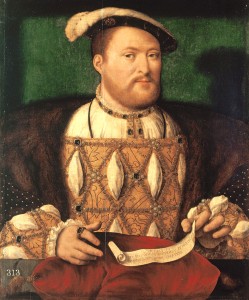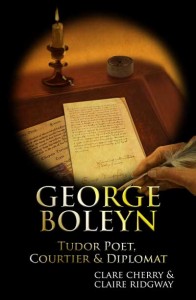
Here is an excerpt on this from George Boleyn: Tudor Poet, Courtier and Diplomat, the biography of George that I co-wrote with Clare Cherry:
“The Convocations of Canterbury and York were the English Church’s legislative body which, like Parliament, was made up of two houses: the upper house of bishops and the lower house of general clergy. The Convocation of Canterbury ran at the same time as Parliament, and the King’s articles were introduced to them on 7 February 1531, following which Convocation met on five consecutive days between 7 and 11 February. George Boleyn, by now a member of the Privy Council, was chosen by Henry to express his growing anti-papal sentiments and Parliament’s arguments in favour of supremacy. He was sent to Convocation on the afternoon of Friday 10 February and delivered various tracts, one of which still survives today.1 George announced to the legislative body that the King’s “supreme auctorite grounded on God’s word ought in no case to be restrayned by any frustrate decrees of popish lawes or voyed prescriptes of humanr traditions, but that he maye both order and minister, yea and also execute the office of spiritual administration in the church whereof he ys head”.2 Convocation did not want to deal with this 26 year-old envoy, they wanted to deal directly with the King but when they sent members of the lower house to see the King, they were turned away and instructed to deal with George. Henry, ever the coward, was happy to use the inexperienced young man as a buffer between himself and Convocation, and this was no doubt to the extreme satisfaction of the Boleyns. The position in which Henry was happy to put George can have done nothing to temper the young man’s pride, and it is hard to imagine that Thomas Boleyn was unmoved by his son’s extraordinary prominence at such tender years.
Convocation initially balked at the idea of recognising Henry as head of the church, and eventually a suggestion was made, either by Cromwell, Thomas Audley or even George Boleyn himself, to qualify the demand with the words “as far as the law of Christ allows”. The following day, upon hearing the King’s agreement to the limitation clause, the clergy agreed the amended wording, thereby accepting royal demands to recognise Henry as “Head of the Church of England, as far as the law of Christ allows”. Although this was a victory for the Boleyns and their supporters, verbal acceptance by the clergy and actual compliance were two different matters, and any act of Convocation had to be agreed on by Parliament to be enforced.”

Notes and Sources
Excerpt taken from George Boleyn: Tudor Poet, Courtier and Diplomat by Clare Cherry and Claire Ridgway (2014), MadeGlobal Publishing, p108-109. The book is available from Amazon.com, Amazon UK and your usual bookstore.
- “Folio 94 Rochford MS, a Treatise Delivered to the Convocation of the Clergy on 10 February 1531, by George Boleyn, Lord Rochford.”
- Lehmberg, Stanford (1970) The Reformation Parliament 1529-1536, Cambridge University Press, p114.